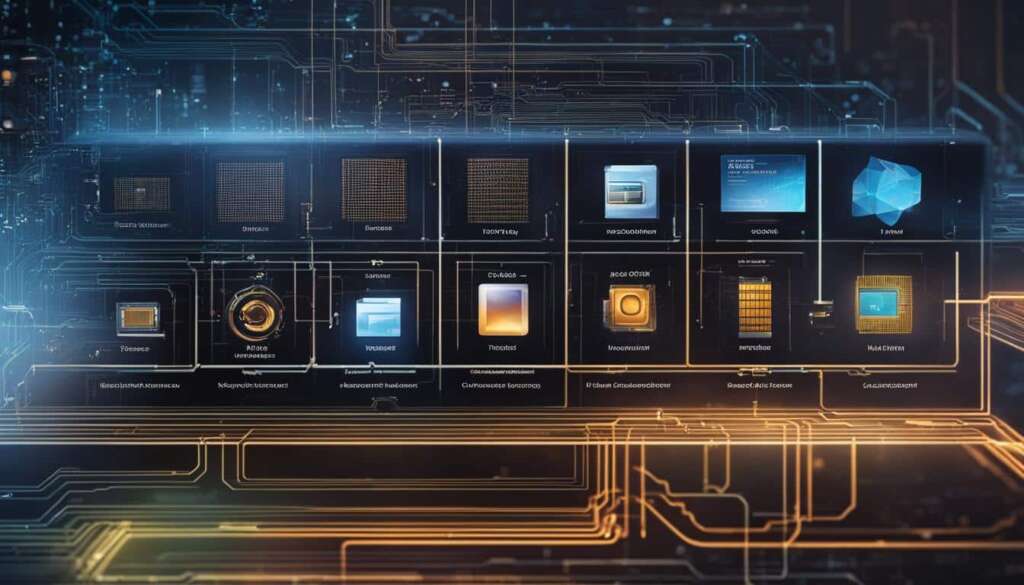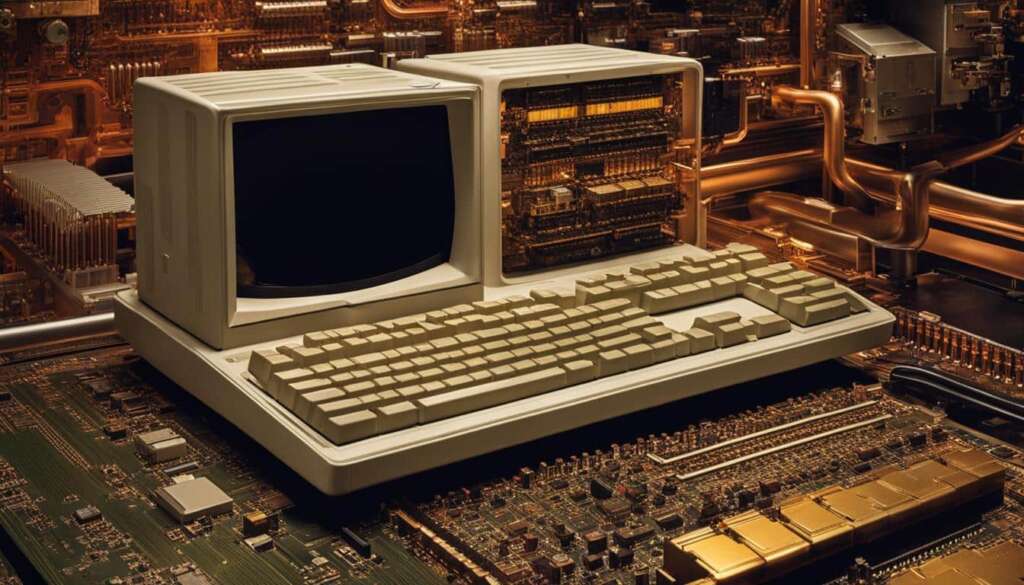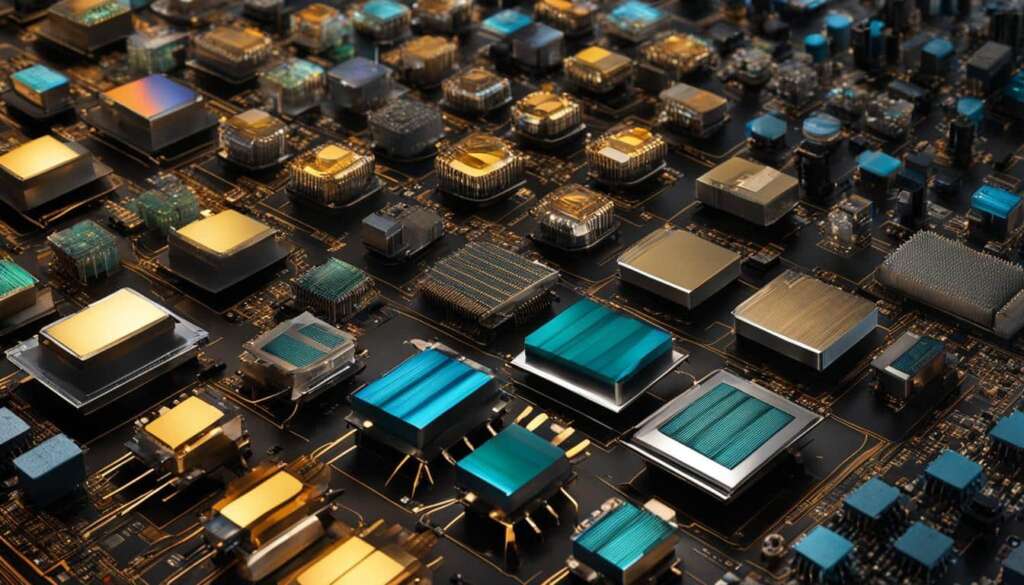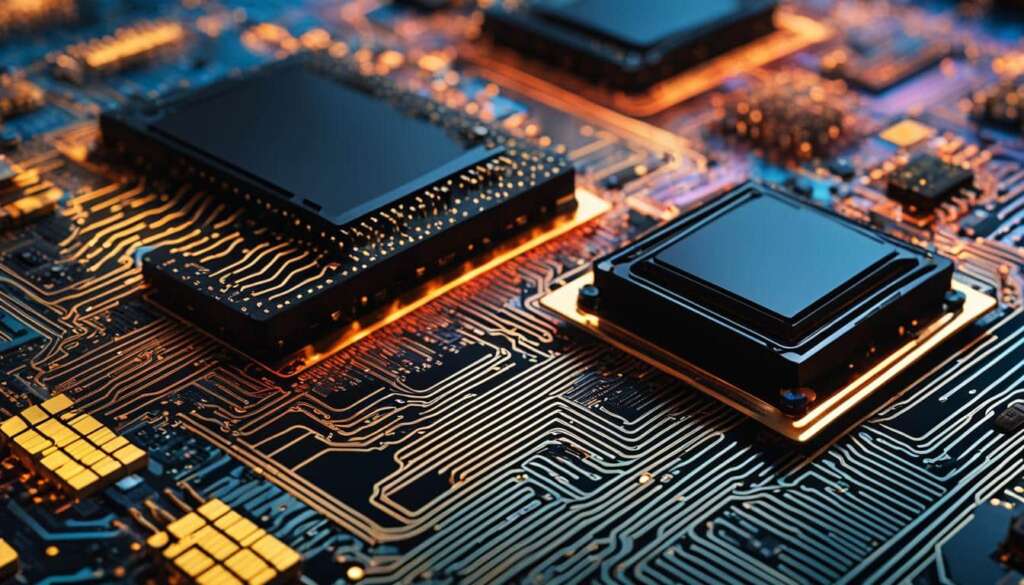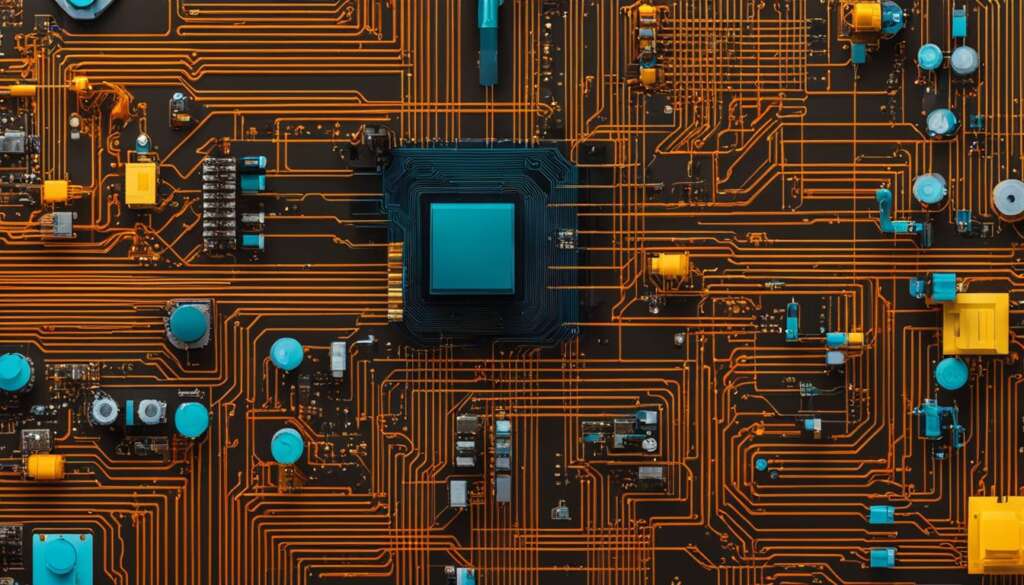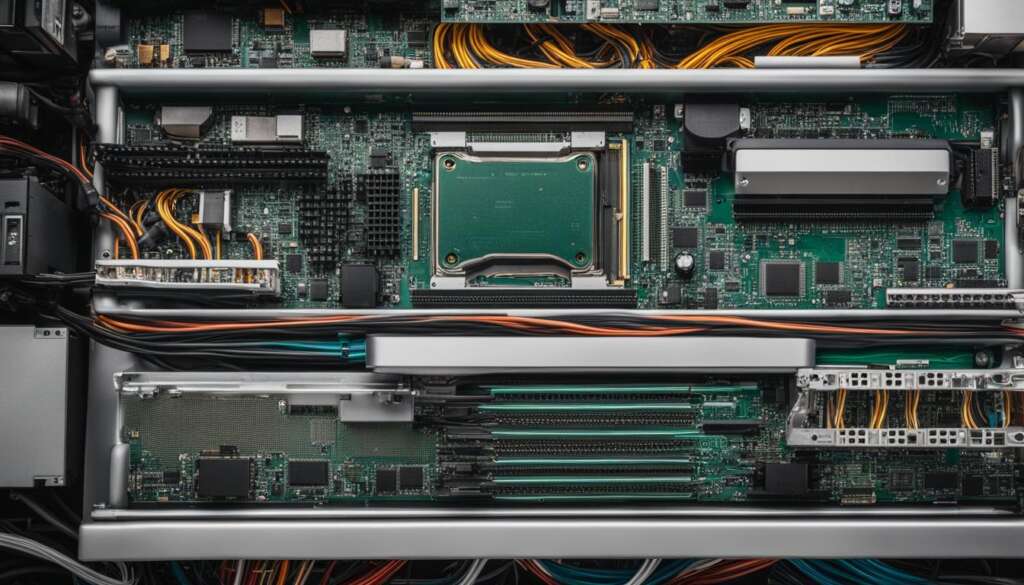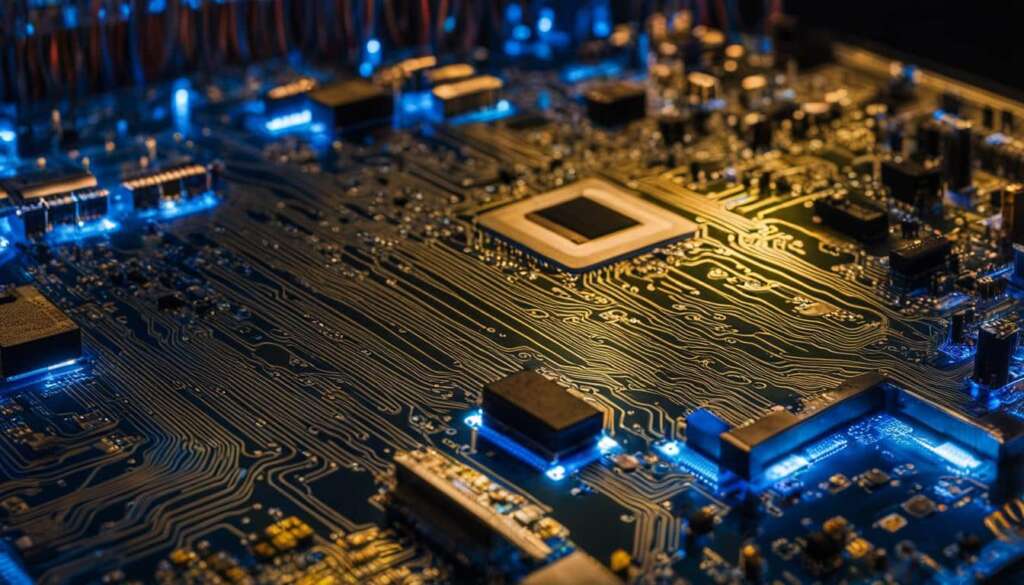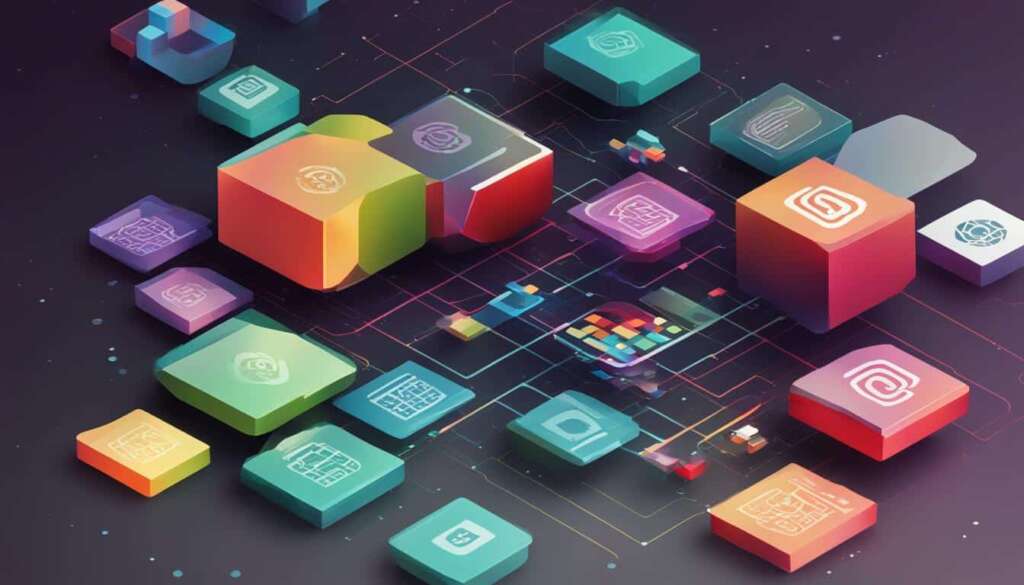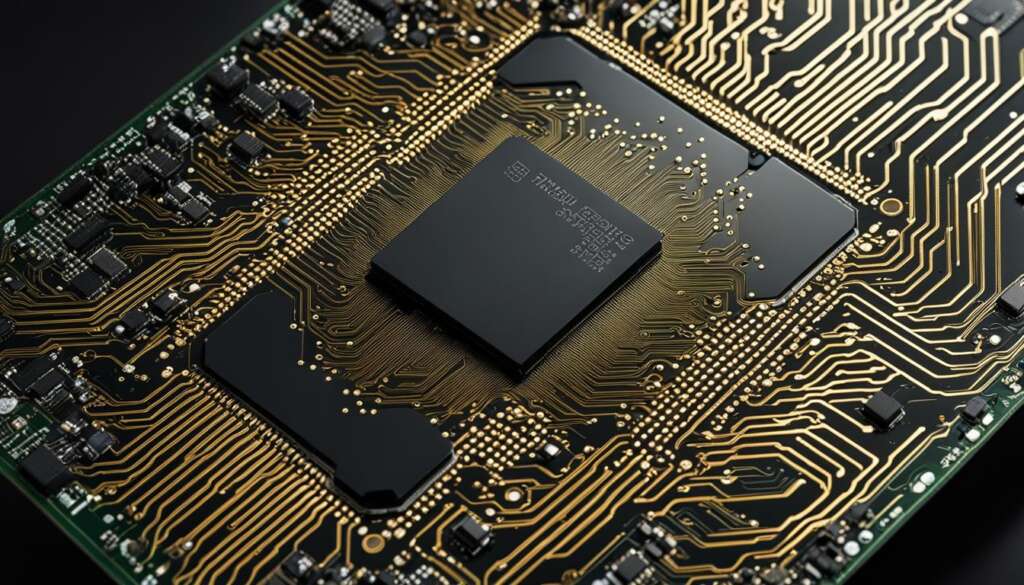Table of Contents
The Processor Internet Revolution has ushered in a new era of digital transformation and technological advancements. The Internet, with its vast network of interconnected systems, has become an integral part of our daily lives, shaping the way we communicate, work, and access information.
At the heart of this revolution is the internet processor, a powerful technology that has enabled the seamless transmission and processing of data across the global network. With advancements in hardware and software, internet processors have become faster, more efficient, and capable of handling complex tasks.
This digital transformation has paved the way for a multitude of technological advancements. From the evolution of the World Wide Web to the proliferation of online services and platforms, the Internet has revolutionized how we interact with information, businesses, and each other.
In the following sections, we will explore the impact of the Internet on various aspects of our society. We will delve into how it has transformed communication, education, privacy and security, business startups, politics and activism, and the future of communication.
Join us on this journey as we uncover the profound influence of the Processor Internet Revolution and its role in shaping our interconnected world.
The Evolution of the World Wide Web
The World Wide Web (WWW) has played a pivotal role in the digital revolution, reshaping communication, commerce, and society as a whole. It emerged in the 1990s, bringing web-based processing to the forefront of internet-driven progress. With over a billion users worldwide, the WWW became a user-friendly information-sharing network system accessible to everyone.
Tim Berners-Lee, a key figure in the development of the WWW, designed the first web server and browser and created protocols like HTTP. This revolutionary technology simplified web browsing and made it more accessible to the masses. The introduction of browsers like Mosaic and Netscape Navigator further enhanced the web experience, making it easier to navigate and explore.
One of the significant milestones in the evolution of the internet was the emergence of Web 2.0 in the 2000s. This new era of the web revolutionized the internet by enabling social media, interactive communication, and user-generated content. It empowered individuals to connect, share information, and participate actively in the online world, giving rise to a new era of collaboration and engagement.
As the internet continues to evolve, the World Wide Web remains at the forefront of this digital transformation. It continues to shape how we interact, learn, and connect with the world, paving the way for future innovations and advancements in communication technology.
The Impact on Communication and Society
The Internet has revolutionized communication, becoming the preferred medium for everyday interactions. It has enabled instant messaging, email, video calls, and the easy sharing of information. The Internet has transformed how we stay informed by providing access to global news sources in real time. Social media platforms have emerged, connecting people from all over the world and reshaping personal relationships. The Internet has also influenced various sectors like business, education, government, and healthcare, driving automation, data processing, and digital transformation.
The automation evolution brought about by the Internet has streamlined processes in various industries. Online data processing has simplified tasks, making them faster and more efficient. Businesses have leveraged automation to improve productivity and accuracy, while also reducing costs. Data processing capabilities have allowed for better analysis and decision-making. Moreover, the Internet has facilitated the sharing and collaboration of information across different organizations, paving the way for innovation and progress.
Education has also been significantly impacted by the Internet. Online learning platforms and resources have made education accessible to a wider audience. Students can now access a wealth of knowledge, research materials, and online courses from anywhere in the world. The Internet has also enabled remote learning, making education more flexible and accommodating to individual needs. It has revolutionized the way we acquire and disseminate knowledge, fostering a continuous learning culture.
| Impact | Examples |
|---|---|
| Communication | – Instant messaging, email, video calls |
| Social Relationships | – Connecting people globally through social media |
| Business | – Automation and data processing for improved efficiency |
| Education | – Access to online learning platforms and resources |
The Internet as a Tool for Education
The Internet has had a profound impact on education, providing unlimited learning opportunities. It has transformed teaching and learning, offering access to vast amounts of information and resources. Online libraries, encyclopedias, and art galleries allow students to explore diverse sources of knowledge. It has also facilitated collaborative learning, enabling students to work together regardless of physical or time constraints. The Internet supports language learning and offers channels for research and cooperation among individuals and groups working on related topics. It has democratized access to education and enhanced the global learning society.
One of the key aspects of the Internet’s impact on education is the availability of online courses and platforms. These platforms offer a wide range of subjects and topics that can be accessed from anywhere in the world. Students can take courses from prestigious universities without the need for physical attendance. This has opened up opportunities for individuals who may not have had access to traditional educational institutions. The convenience and flexibility of online education have also made it more accessible to working professionals who can now balance their careers and education simultaneously.
The Benefits of Online Education
- Access to a wide range of courses and subjects
- Flexible learning schedules
- Accessibility regardless of physical location
- Opportunities for collaborative learning
- Cost-effective compared to traditional education
- Personalized learning experiences
- Continued professional development
Furthermore, the Internet has revolutionized knowledge sharing. Online platforms, such as forums, blogs, and social media, have allowed individuals to share their expertise and insights with a global audience. This has created a decentralized approach to learning, where knowledge is no longer limited to traditional sources. Students and educators can tap into a vast network of resources, perspectives, and experiences, enriching their learning journeys.
| Benefits of Online Education | Traditional Education |
|---|---|
| Flexible learning schedules | Fixed schedules and limited flexibility |
| Accessibility regardless of physical location | Geographical limitations |
| Access to a wide range of courses and subjects | Limited course options |
| Opportunities for collaborative learning | Restricted to classroom interactions |
| Cost-effective compared to traditional education | Higher costs for tuition and materials |
| Personalized learning experiences | Uniform teaching methods |
| Continued professional development | Limited options for further education |
Privacy and Security in the Digital Age
The Internet has revolutionized the way we communicate and access information, but it has also brought concerns about online privacy and data security. As more people use social media platforms and share personal information online, the need for safeguarding privacy has become increasingly crucial. Protecting our online privacy is essential to maintaining a safe and trustworthy digital environment.
Social media platforms play a significant role in the privacy and security debate. While they offer a space for people to connect and share, incidents of privacy breaches and data exploitation have raised concerns. It is important to be aware of the risks associated with sharing personal information online and to take necessary precautions to protect our privacy.
Additionally, individuals should be mindful of their digital footprint and the information they provide on various online platforms. Practicing good online habits, such as using strong and unique passwords, enabling two-factor authentication, and being cautious when sharing personal details online, can help protect against privacy breaches and unauthorized access to our data.
Moreover, staying informed about the latest privacy policies and settings of the platforms we use can empower us to make informed decisions about our online presence. It is important to regularly review and update privacy settings, limiting the visibility of personal information to ensure a safer online experience.
The Economic Impact and Business Startups
The Internet has had a significant impact on the economy, transforming the way businesses operate and giving rise to a new wave of startups. Technological advancements and the digital transformation have opened up countless opportunities for entrepreneurs to launch online businesses and capitalize on the global reach of the Internet.
E-commerce has been one of the key areas of growth, allowing businesses to sell products and services online, reaching customers around the world. Companies like eBay and Amazon have revolutionized the retail industry, offering a wide range of products and seamless shopping experiences. The convenience and accessibility of online shopping have contributed to the success of these e-commerce platforms, driving the growth of the digital economy.
“The Internet has provided a level playing field for businesses, allowing startups to compete with established players. The low barriers to entry and the ability to target niche markets have empowered entrepreneurs to bring innovative products and services to market.”
Moreover, the Internet has created new business models and opportunities. Digital marketing and advertising have become essential for businesses to reach their target audience and drive growth. Social media platforms have played a crucial role in enabling businesses to connect with customers and build brand awareness. Influencer marketing has also emerged as a powerful tool, with individuals on social media platforms promoting products and services to their followers.
| Impact of the Internet on Businesses | Examples |
|---|---|
| Global market reach | Online marketplaces like eBay and Amazon |
| Low barriers to entry | Startups launching unique products/services |
| Digital marketing and advertising | Social media campaigns, influencer marketing |

The Internet has undoubtedly transformed the business landscape, leading to increased competition, innovation, and economic growth. As technology continues to evolve, businesses must embrace digital transformation to stay relevant in an increasingly connected world.
The Internet’s Impact on Politics and Activism
The Internet has played a significant role in shaping political movements and activism, ushering in a new era of digital revolution. With the rise of social media platforms, individuals now have a powerful tool at their disposal to express their ideas and mobilize like-minded individuals. Online communities and platforms have given a voice to ordinary people, challenging traditional forms of media and enabling the sharing of diverse perspectives.
One of the key advantages of social media is its ability to connect people from all corners of the globe. It has facilitated the formation of broad-based political movements, allowing individuals to come together to advocate for causes they believe in. These movements have played a crucial role in pressing for social change, highlighting issues that might have otherwise gone unnoticed. The Internet has also made it easier for individuals to participate in democratic processes, allowing them to hold those in power accountable.
In addition to political activism, the Internet has also had a significant impact on how political campaigns are conducted. Social media platforms have become vital tools for politicians to communicate with their constituents, shape public opinion, and mobilize support. Platforms like Twitter, Facebook, and Instagram have allowed politicians to bypass traditional media channels and directly engage with their followers, sharing their views and gathering feedback.
“The Internet has become a driving force behind political movements, fostering a sense of unity and empowerment among individuals worldwide.”
The Impact of Social Media on Political Movements
Social media has revolutionized the way political movements are organized and communicated. Its immediacy and accessibility have made it easier for grassroots movements to gain momentum and reach a wider audience. The hashtag has become a powerful symbol of solidarity and a rallying point for individuals who share a common cause.
Furthermore, the Internet has enabled activists to document and share instances of injustice, creating awareness and putting pressure on governments and institutions. From the Arab Spring to the Black Lives Matter movement, social media has played a crucial role in mobilizing support and shining a light on issues that might have otherwise been marginalized or ignored.
| Impact of the Internet on Politics and Activism | Examples |
|---|---|
| Facilitated the formation of political movements | Arab Spring, Occupy Wall Street |
| Enabled direct communication between politicians and constituents | Barack Obama’s use of social media during his presidential campaigns |
| Provided a platform for marginalized voices and marginalized causes | Black Lives Matter, #MeToo |
The Internet has become a driving force behind political movements, fostering a sense of unity and empowerment among individuals worldwide. It has democratized access to information and given individuals the tools they need to effect change. As technology continues to advance, the Internet’s role in shaping politics and activism will only become more significant, creating new opportunities and challenges for those seeking social and political progress.
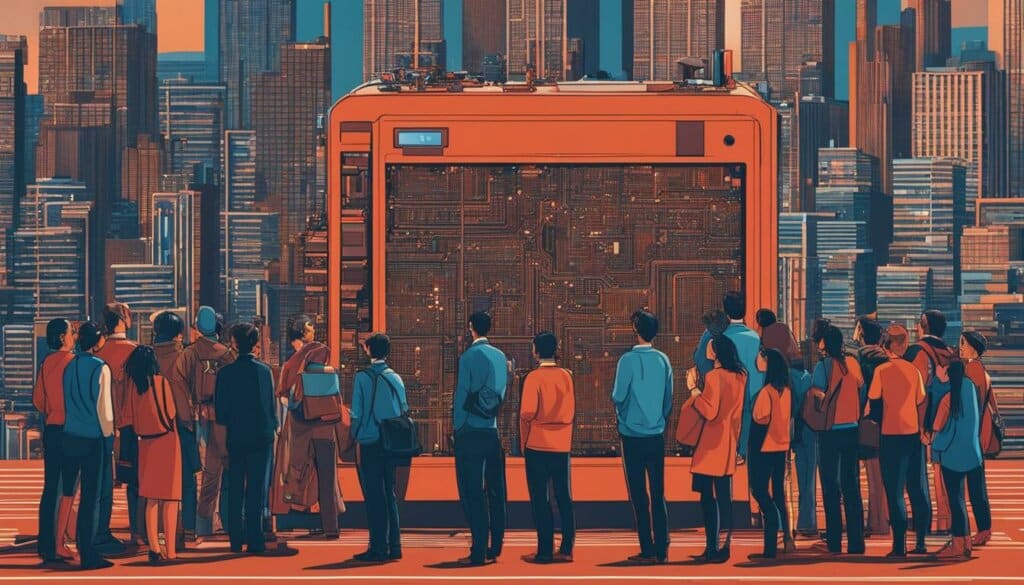
The Mobile Internet and Connectivity
The mobile Internet has revolutionized the way we connect and interact with the digital world. With the integration of artificial intelligence (AI) and advancements in mobile technology, the possibilities for internet connectivity have become limitless. Mobile devices such as smartphones and tablets have become our portable gateways to the online realm, providing constant access to information and services.
AI integration has transformed the mobile internet experience, making it more personalized and intuitive. Smart assistants like Siri and Google Assistant utilize AI algorithms to understand and respond to our commands, making tasks like searching the web or setting reminders effortless. AI-powered applications can learn and adapt to our preferences, providing us with tailored recommendations, whether it’s suggesting movies to watch or products to buy.
With the mobile internet, we are no longer tied to our desks or limited by physical boundaries. We can browse websites, stream videos, and connect with others from anywhere in the world. The convenience and accessibility of the mobile internet have empowered us to stay connected, informed, and entertained on the go.
Internet connectivity has also expanded beyond traditional Wi-Fi networks. The rise of 5G technology has brought faster and more reliable connections, enabling seamless streaming, gaming, and communication. As 5G networks continue to roll out globally, the mobile internet experience will only improve, providing enhanced speed and bandwidth for a wide range of applications.
| Benefits of the Mobile Internet and Connectivity | Challenges of the Mobile Internet and Connectivity |
|---|---|
|
|
The mobile internet and connectivity have transformed the way we live, work, and connect with the world. It has opened up new possibilities for communication, entertainment, and productivity. With AI integration and the ongoing advancements in mobile technology, the future of the mobile internet looks promising, heralding a new era of connectivity and innovation.
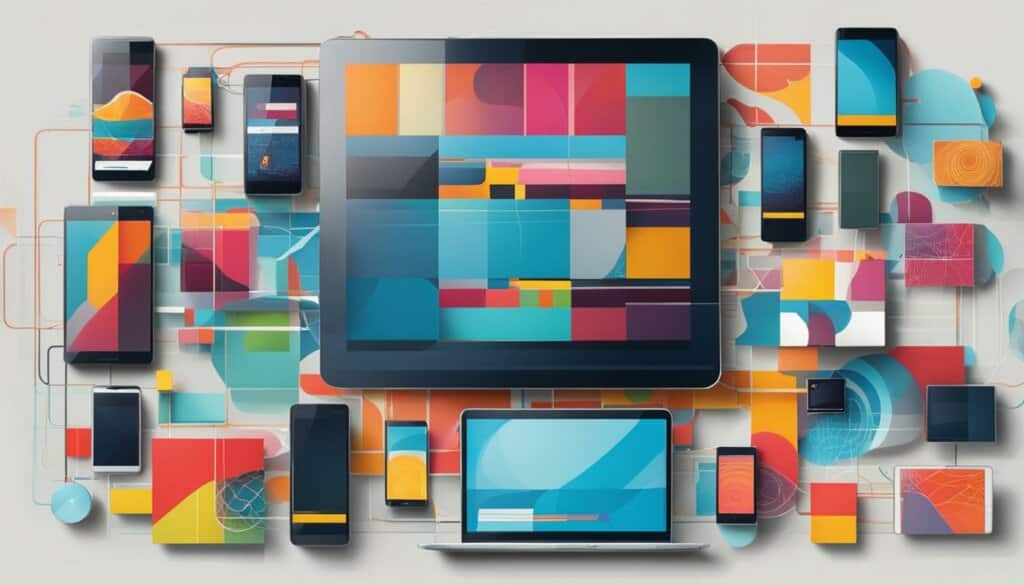
The Social Impact of Social Media
Social media platforms have revolutionized the way we communicate and interact in the digital age. From connecting with friends and family to engaging in global conversations, social media has become an integral part of our daily lives. It has transformed personal relationships, introducing new ways of staying connected and fostering virtual communities. With the rise of social media, the world has witnessed a communication revolution that has reshaped how we share information, express ourselves, and engage with others.
“Social media has given individuals a powerful voice, enabling them to share their stories, opinions, and experiences on a global scale.”
Social media platforms allow individuals to express themselves freely, making it easier than ever to share thoughts, ideas, and opinions. From posting photos and videos to writing status updates and blog posts, social media has become a platform for self-expression and creativity. It has also opened up new avenues for activism and political movements, giving individuals the power to mobilize and create change. Social media has played a crucial role in raising awareness about social issues, facilitating grassroots movements, and challenging traditional forms of media.
However, the rise of social media has not been without its challenges. Concerns about privacy, cyberbullying, and the spread of misinformation have emerged as significant issues. As social media continues to evolve, it is essential to address these challenges and find ways to create a safe and inclusive online environment. Ensuring digital literacy and promoting responsible use of social media are crucial steps towards harnessing the full potential of these platforms while mitigating their negative impacts. As we navigate the ever-changing landscape of social media, it is important to strike a balance between connectivity and well-being, utilizing these platforms to foster positive connections and meaningful interactions.
| Positive Impact of Social Media | Negative Impact of Social Media |
|---|---|
|
|
The Future of Social Media
As technology continues to advance and digital transformation accelerates, social media will undoubtedly play a significant role in shaping the future of communication. Emerging trends in social media include the integration of augmented reality (AR), virtual reality (VR), and artificial intelligence (AI) technologies. These innovations will enhance user experiences, allowing individuals to interact with social media in more immersive and personalized ways. Furthermore, social media is likely to continue evolving as a platform for e-commerce, with seamless integration of shopping experiences on popular platforms.
As we look ahead, it is crucial to recognize the power of social media and its impact on society. By harnessing the potential of these platforms while addressing their challenges, we can shape a future where social media serves as a tool for positive change, connecting people, fostering understanding, and driving meaningful conversations.
The Internet and the Future of Communication
The Internet continues to evolve, shaping the future of communication. Advances in technology and connectivity will further revolutionise how we interact with one another. The Internet of Things (IoT) will enable smart devices to communicate and automate various aspects of our lives. Artificial intelligence integration will enhance online experiences and enable personalised interactions. The Internet will continue to be a catalyst for innovation and social evolution, driving digital transformation in all aspects of society.
With the rapid advancement of technology, the Internet of Things (IoT) is set to transform the way we communicate and interact. The IoT refers to the network of interconnected devices embedded with sensors and software, allowing them to collect and exchange data. These devices, known as “smart” devices, include everyday objects such as appliances, vehicles, and even clothing. By seamlessly connecting these devices, the IoT enables them to communicate and collaborate, creating a more efficient and interconnected world.
Artificial intelligence (AI) integration will play a crucial role in the future of communication. AI technologies, such as machine learning and natural language processing, have already made significant advancements. They are capable of understanding and responding to human speech, generating realistic virtual characters, and providing personalized recommendations. As AI continues to evolve, it will revolutionize the way we communicate, enabling more natural and intelligent interactions.
The Benefits of the Evolving Internet
- Improved connectivity: The Internet will become faster, more reliable, and accessible to a wider range of devices, allowing for seamless communication across different platforms and technologies.
- Enhanced collaboration: The Internet will enable individuals and teams to collaborate more effectively, breaking down geographical barriers and facilitating real-time information sharing.
- Increased efficiency: The integration of AI and automation will streamline processes, reducing the need for manual work and enabling faster and more accurate communication.
- Personalised experiences: With advancements in AI, the Internet will be able to deliver personalized content, products, and services tailored to individual preferences and needs.
In conclusion, the future of communication on the Internet is filled with exciting possibilities. As technology continues to advance, we can expect a more connected, intelligent, and efficient digital landscape. The Internet of Things and artificial intelligence integration will play pivotal roles in shaping this future, enabling seamless communication, enhancing collaboration, and delivering personalized experiences. The evolving Internet is set to drive digital transformation across all aspects of society, revolutionizing the way we interact and communicate.
Conclusion
The Processor Internet Revolution has transformed the digital world, revolutionising communication, business, education, and society as a whole. The Internet, combined with advancements in processor technology and connectivity, has driven a digital transformation that has reshaped our lives.
From the evolution of the World Wide Web to the impact on education, privacy, and security concerns, economic growth, political activism, and the emergence of social media, the Internet continues to revolutionise how we interact, learn, and connect with the world.
As we look to the future, the Internet will play a crucial role in further advancements and innovations, impacting all aspects of our society. The rapid pace of technological advancements and the internet-driven progress will continue to shape our digital landscape, driving further digital transformation and pushing the boundaries of what is possible.
With the Processor Internet Revolution, we have witnessed an unprecedented level of change and innovation. As processor technology continues to evolve, the internet will become more powerful and ubiquitous, enabling new possibilities in communication, business, education, and beyond. The digital transformation brought by the Processor Internet Revolution is the foundation on which our future progress will be built.
FAQ
What is the Internet?
The Internet is a global communications network consisting of thousands of interconnected networks. It allows for the efficient transmission of data and has revolutionized communication and society as a whole.
How did the Internet evolve?
The Internet began as a military project in the 1960s and expanded to connect scientists and universities. The invention of packet-switching technology allowed for efficient data transmission, and the emergence of the World Wide Web in the 1990s further revolutionized the Internet.
How has the Internet impacted education?
The Internet has transformed education by providing unlimited learning opportunities. It offers access to vast amounts of information and resources, facilitates collaborative learning, and democratizes access to education.
What are the privacy and security concerns associated with the Internet?
As more people use the Internet and social media, there are concerns about privacy breaches, inappropriate use of personal information, and data exploitation. Online security measures are crucial to ensure a safe and trustworthy digital environment.
What is the economic impact of the Internet?
The Internet has fostered the growth of online businesses and startups, leading to economic booms. However, it has also experienced bursts of growth and downfall, such as the dot-com bubble. The Internet continues to reshape the economy through e-commerce platforms and digital transformation.
How has the Internet influenced politics and activism?
Social media platforms have enabled the formation of online communities and the sharing of ideas and information. The Internet has empowered individuals to participate in democratic processes, challenge traditional media, and hold those in power accountable.
How has the mobile Internet changed our lives?
The mobile Internet has enabled comprehensive connectivity via smartphones and tablets, allowing people to access the Internet from anywhere at any time. This has transformed the way we consume and interact with online content, integrating artificial intelligence and enhancing user experiences.
What is the social impact of social media?
Social media platforms have redefined how we communicate and interact, changing personal relationships and everyday processes. They have given individuals a voice on a global scale, allowing them to share their stories and opinions. Social media has become an integral part of popular culture.
What does the future hold for the Internet?
The Internet will continue to evolve, shaping the future of communication. Advancements in technology and connectivity will further revolutionize how we interact with one another. The Internet of Things and artificial intelligence integration will enhance online experiences and drive digital transformation in all aspects of society.

